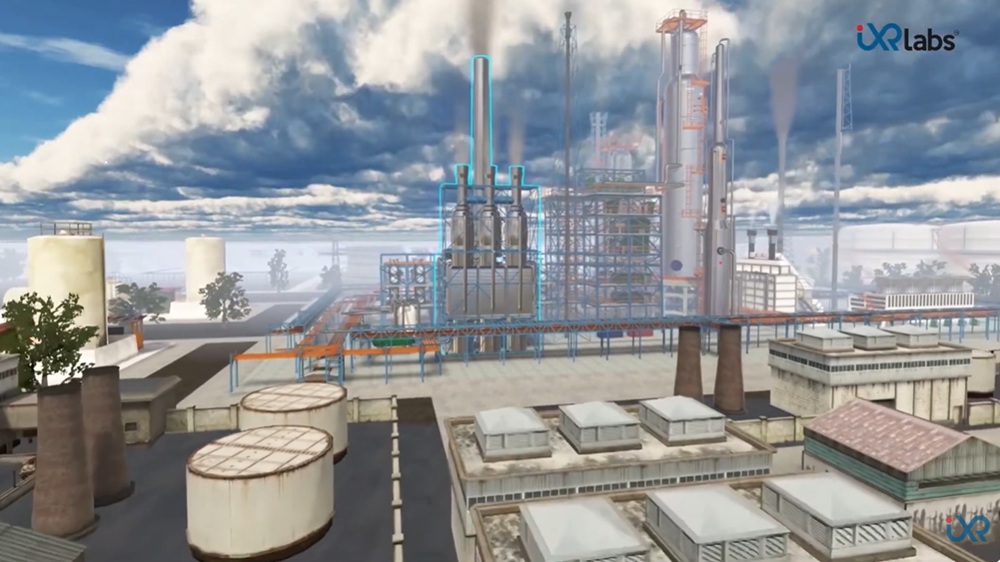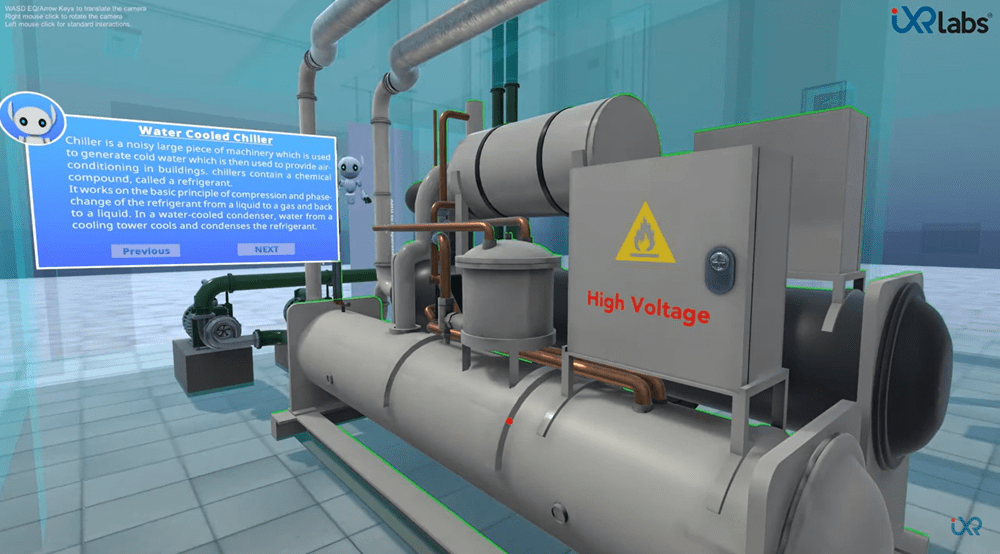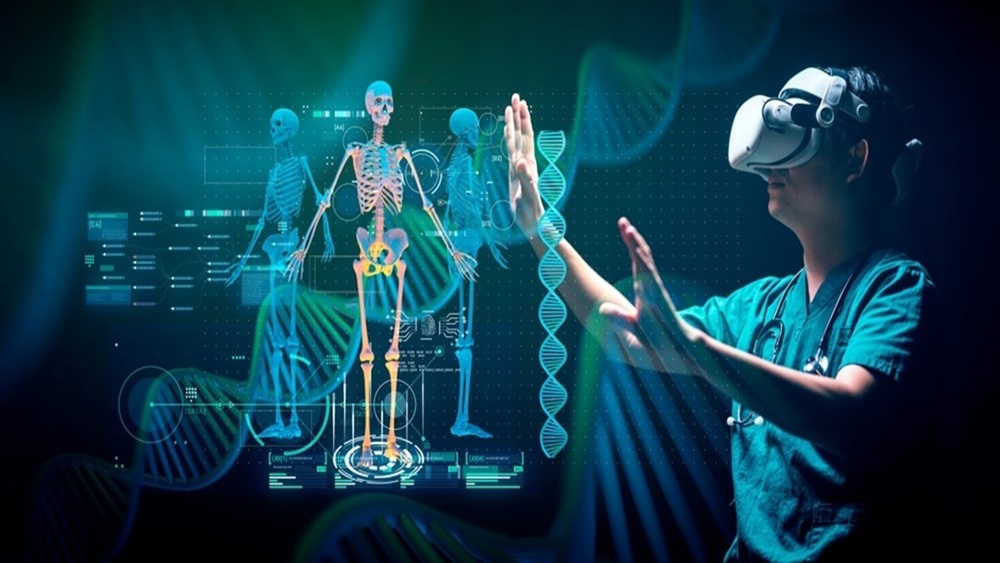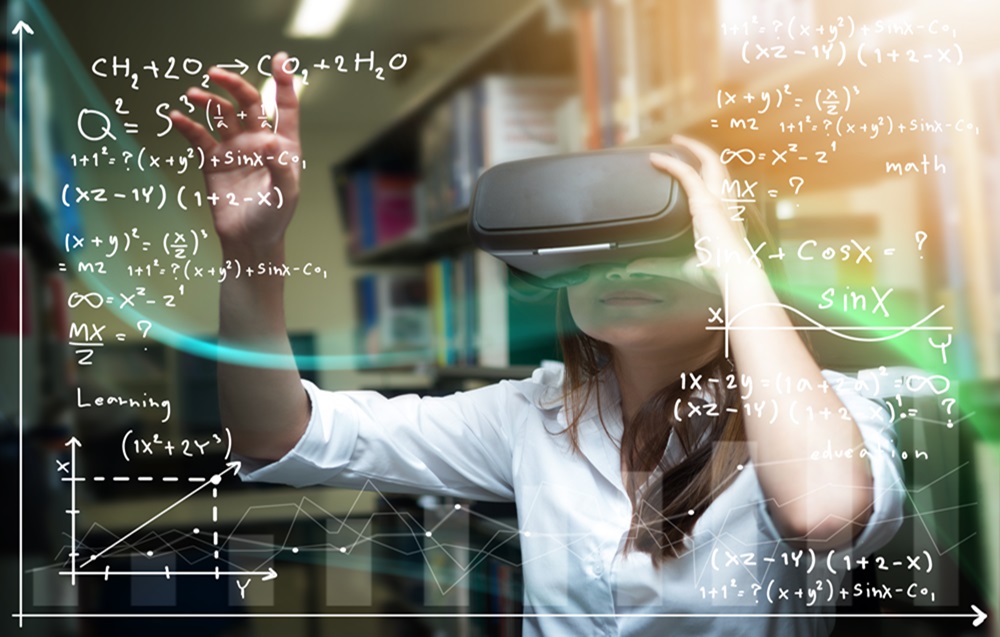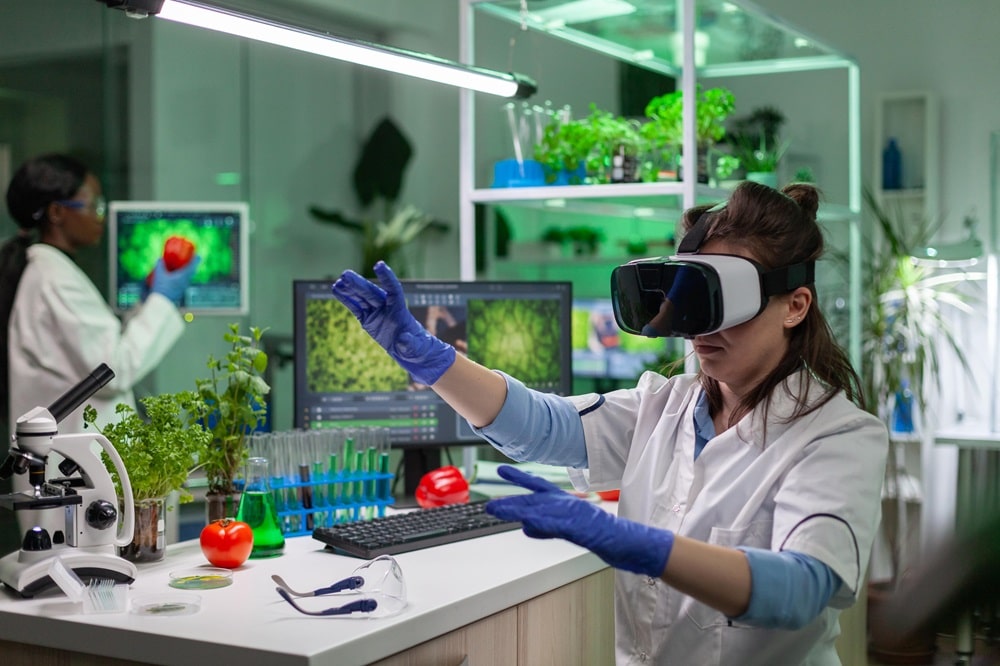What Makes VR Education a Potent Technology?
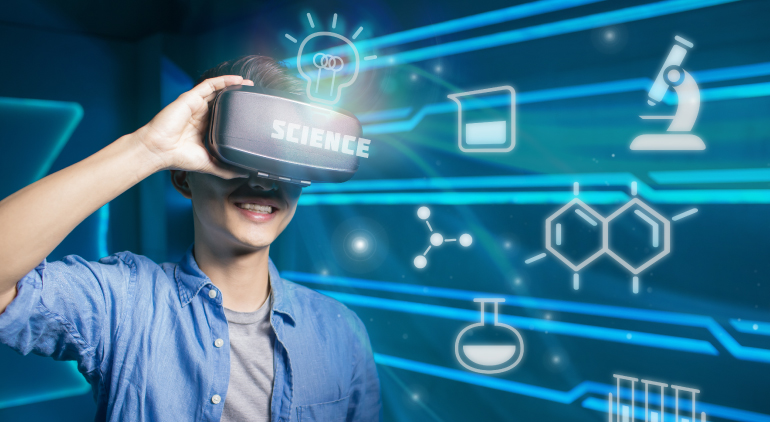
A rather small VR device can convert into an entire science lab.
This statement conveys the might and power of VR technology for education.
VR enhances student engagement and offers deeper learning insights by allowing students to interact with educational content. The technology is a marvel and offers context and relevancy thereby improving cognitive skills.
A robust education system is the foundation for ant developed society and knowledge has always been revered since times immemorial. In this era of technological devices, we can avail a rapid transfer of data and knowledge. People can access it from anywhere across the globe, due to the internet.
Virtual reality is an emerging technological innovation spearheading transformative changes and heralding a new way of learning and teaching. It is the next natural and logical sequence in the evolution of education.
The educational sector is realizing the benefits and the increasing adoption is leading to market growth.
- A Fortune BI report, suggests that the global virtual reality in higher education market size will touch $13,098 million by 2026.
The market is optimistic and as the technology evolves, there will be interesting applications of VR education technology.
Benefits of an Immersive VR Education
Virtual Reality Labs are highly immersive 3D environments. Imagine learning about 3D shapes in a 3D environment! Traditionally, students have been learning about 3D shapes and concepts in 2D.
Over the years, the education system catered only to those who could take some takeaways from this method of learning leaving out a vast majority to grapple with the gaps in learning. VR is able to fill in the learning gap and explain abstract concepts the way they should.
Imagine a medical student can hold a human heart in their hands and rotate it to view it from any angle!! They can enter the heart and view its intricacies minutely. This is the real power of immersive learning through VR education.
Experiments can be carried out freely in a VR Lab with zero risk, zero fear, and at no additional costs. Teachers need not read out lessons to disinterested students and try and keep them awake!!
Together they can visit the VR Labs and interact with the educational content. They experience lessons rather than learn lessons. Active and hands-on learning fosters higher learning outcomes, keeps students interested, and helps develop professional and soft skills.
VR education facilitates a student-centric pedagogy model versus a teacher-led one. With the help of virtual reality labs, students can learn from campus or remotely.
Both modes can avail the advantages. VR labs augment key skills and allow students to master skills by putting them in simulated real-world situations.
VR Education Promotes Active and Experiential Learning
Educationists categorize learning under two broad heads- Active and Passive.
Passive learning occurs when students learn via textbooks or by listening to an instructor. Active Learning, however, requires that the student is a key participant in their own learning journey.
Related Post: Using VR for Experiential Learning in College
For example - conducting experiments in the lab or making a dynamo. These are active learning cases where students are involved in the process and learning is automatic.
This method is more interesting and challenging and captures the attention of students. Needless to say, they remember and recall better from these instances. VR education augments the learning capacities of students through active learning.
"Want to See How VR Can Change Learning? Find Out Why VR Education is Powerful and How It Can Make Learning More Fun and Effective
Key Elements of a VR Educational Experience
1. Immersive and Interactive
This is one of the best features that VR offers. The user experience should be as real as possible. A good VR system will enable high interaction with the educational content. The level of interactivity and immersion will depend on the human senses that a device can control.
2. High Sensory-Viewing and Tracking System
The ability to cater to all the human senses is what makes a simulated environment real. A good VR setup should allow the users to feel any variation in the environment and feel the 3D experience to be immersed in their surroundings. A high-quality viewing system will enable an awesome experience.
3. High Creativity
The VR user experience is based on sensing and responding, the content should be creative and imaginative to capture the user's interest. A good VR system will pay attention to the elements to capture users' attention to enhance engagement.
4. Realistic and Meaningful
The content should be meaningful and conveyed in interesting ways. Moreover, the overall experience should be as close as possible to a real-world scenario, fast and bug-free to gain the best experience.
5. Flexible and Quantifiable
VR labs are being hailed as it enables self-paced and student-led learning. A good VR system offers students control over their lessons to achieve better learning outcomes. Moreover, it should allow teachers to track key metrics and measure academic impact.
 Get the App from Meta Store: Download Now
Get the App from Meta Store: Download Now
Wrapping Up
VR is one of the most impactful technologies that education can benefit from. It helps students to understand complex concepts and enhance their understanding of the subject matter.
VR enables active participation and hands-on learning, which is not feasible in the traditional setup. The way we consume and impart educational content in VR will revolutionize the knowledge ecosystem.
A VR model encourages critical thinking by promoting a student-centric approach. Students are encouraged to devise their own learning paths and be intrinsically motivated to continuously improve their learning index.
Critical thinking is an important skill suited to the 21st-century education and workplace model.
VR technology for education is proving to be a potent educational tool promoting lifelong learning. Students have reported higher engagement and hence higher retention and connection to learning content.
The power of VR in education technology holds a lot of promise and potential. Institutes are gearing up to move towards VR deployment.
iXR Labs is a highly specialized VR Education solutions provider working in the higher education domain. Our innovative and state-of-the-art VR labs are enabling many students to realize their full potential.
Visit our website and contact us today to see how we make a difference to educational institutes and students across the globe.
